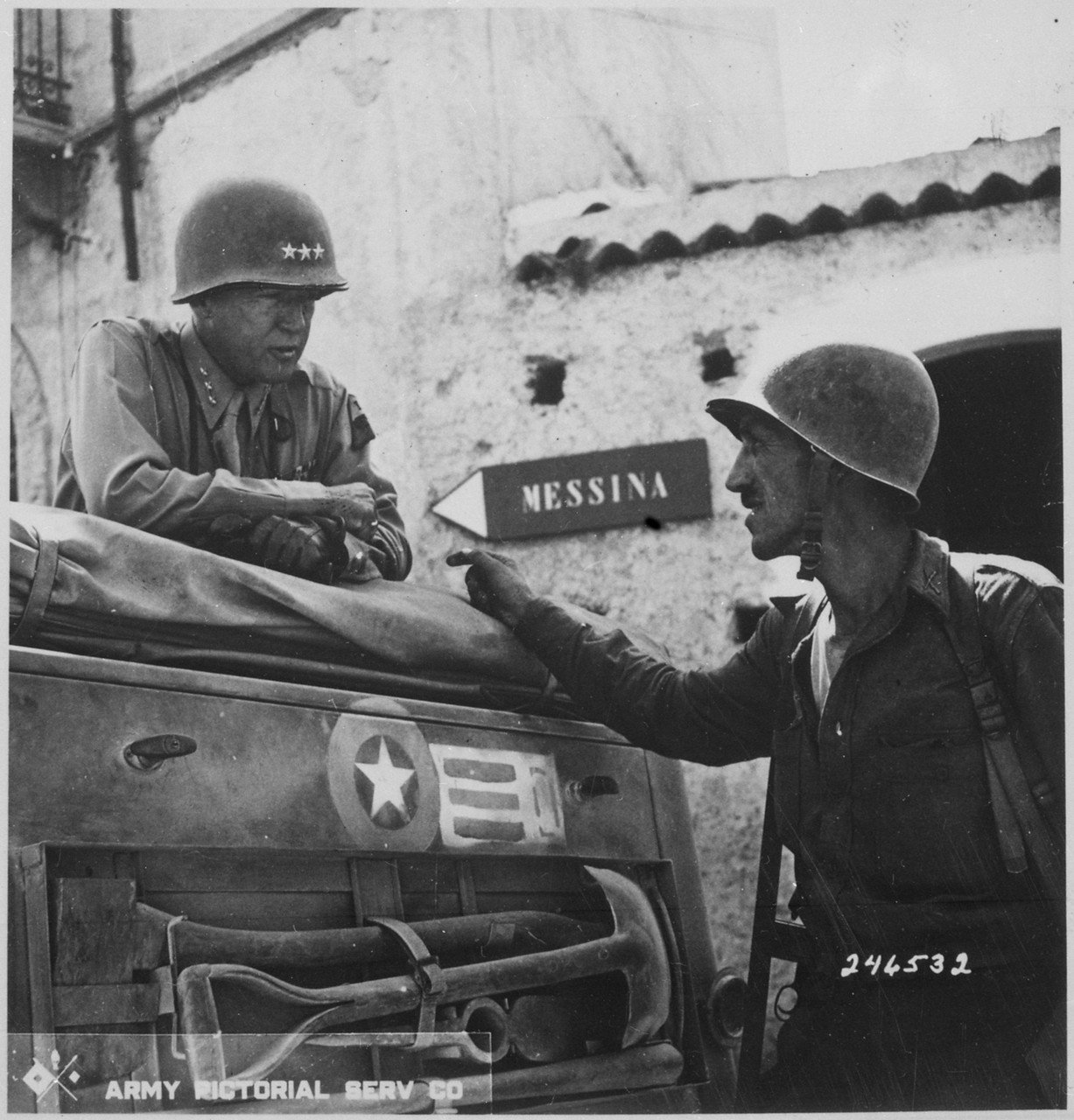During the preparation of Operation Husky, Patton, who was commander of the 2nd Army Corps which had been successfully engaged in North Africa, had no say in the planning of the operation due to some disagreements with US General Eisenhower. He therefore had to accept the plans drawn up by the British, who assigned him a role equivalent to Montgomery in rank but in fact subordinate to him both in terms of troop size (90,000 against 110,000) and their strategic role.
The American landing encountered problems with the resistance that was put up by the Italians and Germans at Gela. Patton, however, soon managed to break through the enemy defenses and continued into the heart of the island. On 16 July, he asked for and was granted access to Agrigento. Then, forcing British General Harold Alexander's directives, he directed US General Keyes to Palermo. The Americans also fought on the San Fratello Line and at Troina. Patton's aggressive tactics upset the internal balance of the Allied contingent. General Montgomery had to accept an American advance on the north coast that led to the liberation of Messina on 17 August 1943.
Patton, after some disciplinary measures, continued his career in the 3rd Army, which was sent to Normandy shortly after the D-Day landings of 6 June 1944. He helped liberate several French towns and responded to the German counter-offensive in the Ardennes. He later crossed the Rhine and reached as far as Pilsen, before becoming military administrator of Bavaria. He died at the end of 1945 in a car accident.
Patton was one of the most effective and famous but also controversial generals of the Second World War. Offensive speeches, often rash statements, racist and anti-Semitic opinions cost him the command of the Army and the continuation of his career. His passage through Sicily was also tainted by numerous shadows: the American forces under his orders (and often at his direct instigation) were guilty of various crimes, the most notorious of which was the massacre of prisoners at Biscari, today's Acate, on 14 July 1943 (for which, however, he was never indicted). He was also repeatedly reported for questionable behaviour, such as when he publicly insulted and slapped two hospitalised soldiers, accusing them of cowardice.
